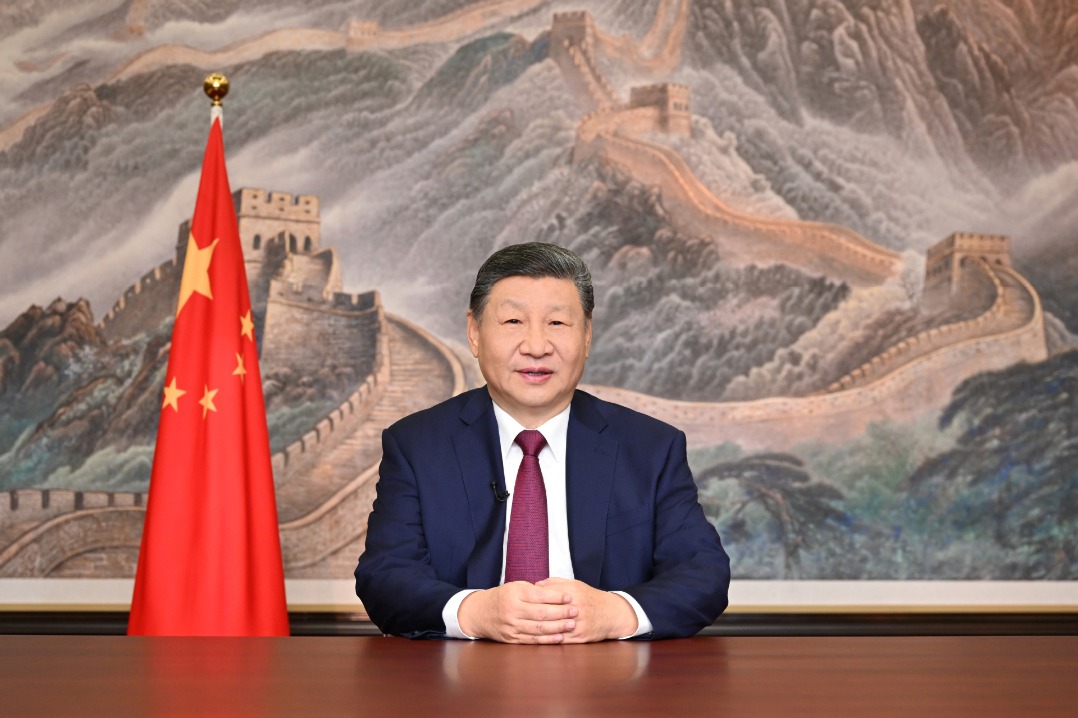Chinese chess game finds more followers in Lebanon

BEIRUT — Seated at a two-person table, Moslem Nasrallah was engrossed in a Chinese chess game, deliberating strategic moves with his sister. He was practicing for a competition at the Confucius Institute at Saint Joseph University, or USJ, in Beirut.
"I am eager to enhance my proficiency and partake in international Chinese chess competitions," the 22-year-old said.
Despite only learning how to play Chinese chess recently, Nasrallah won the first prize in the beginner's category.
Nasrallah said his knowledge of chess has helped him quickly understand Chinese chess. He added that Chinese chess is a more tactical game, fostering critical thinking skills.
Chinese chess, or xiangqi, is gaining popularity among Lebanese youths, leading the Confucius Institute at USJ and the Xiangqi Committee in Lebanon to organize the inaugural Confucius Institute Xiangqi Championship, attracting around 70 participants from Lebanon and China.
Elie Al-Mallah, a 23-year-old Lebanese who studied Chinese translation at Lebanese University, was drawn to Chinese chess for its mental stimulation, noting its distinct board movements from regular chess and its representation of a battlefield.
"I believe playing Chinese chess is an integral part of learning about Chinese culture," Al-Mallah said.
Al-Mallah said there is a growing awareness among Lebanese parents about the significance of understanding Chinese culture, and they have been encouraging their children to participate in activities related to China.
Johnny Abou Jaoude, 14, shared his enthusiasm for Chinese chess, which he discovered online, and his two-year participation in classes with the Xiangqi Committee. "I love the rules in Chinese chess," he said, expressing his desire to popularize the game in Lebanon by sharing it with friends.
Elias Abou Jaoude, head of the Xiangqi Committee in Lebanon and organizer of the USJ's Chinese chess competition, said the committee focuses on promoting Chinese chess in schools through seminars, emphasizing its cognitive benefits for children.
"We aspire to make this event an annual tradition with USJ, expecting increased participation in the coming years," he said.
Liu Li, the Chinese director at the Confucius Institute, highlighted the institute's recent introduction of Chinese chess classes to those who are eager to learn the game.
Liu emphasized the significance of hosting the Chinese chess competition at USJ, fostering communication and understanding between Lebanese and Chinese people, building new friendships, and promoting a deeper appreciation of Chinese culture.
Nisrine Abdel Nour Lattouf, the Lebanese director at the Confucius Institute, noted the rising enthusiasm for Chinese chess in Lebanon and the ongoing efforts to develop it further.
"Many are intrigued by Chinese culture for its richness, uniqueness, and the new perspectives it opens," she said.
Xinhua

Today's Top News
- Confidence, resolve mark China's New Year outlook: China Daily editorial
- Key quotes from President Xi's 2026 New Year Address
- Full text: Chinese President Xi Jinping's 2026 New Year message
- Poll findings indicate Taiwan people's 'strong dissatisfaction' with DPP authorities
- Xi emphasizes strong start for 15th Five-Year Plan period
- PLA drills a stern warning to 'Taiwan independence' separatist forces, external interference: spokesperson






























